Few Americans understand the games played by Generals to preserve their power and perks. Kelley Barracks in Germany provides an excellent example. As the Cold War ended, the U.S. Army deactivated several units in Germany and could not justify two Corps commands for just two combat divisions. It was decided that VII Corps headquarters at beautiful Kelley Barracks would be deactivated, along with its three-star General, several other Generals, a squad of Colonels, and a few hundred mid-ranking officers. With no purpose, Kelley Barracks would soon close.
But Kelley Barracks remains open today, with even more Army Generals and more staff! This is how Kelley Barracks was saved, and improved. After the Warsaw Pact dissolved, civilian leaders demanded that unneeded U.S. Army bases in Germany close, yet Army Generals convinced the Bush Administration that a new major command was required to rule Africa. At that time, responsibility for African operations was split between the Central Command and the European Command. This arrangement worked well, especially because the USA had no bases in Africa and rarely intervened militarily in the quagmire of African fighting.
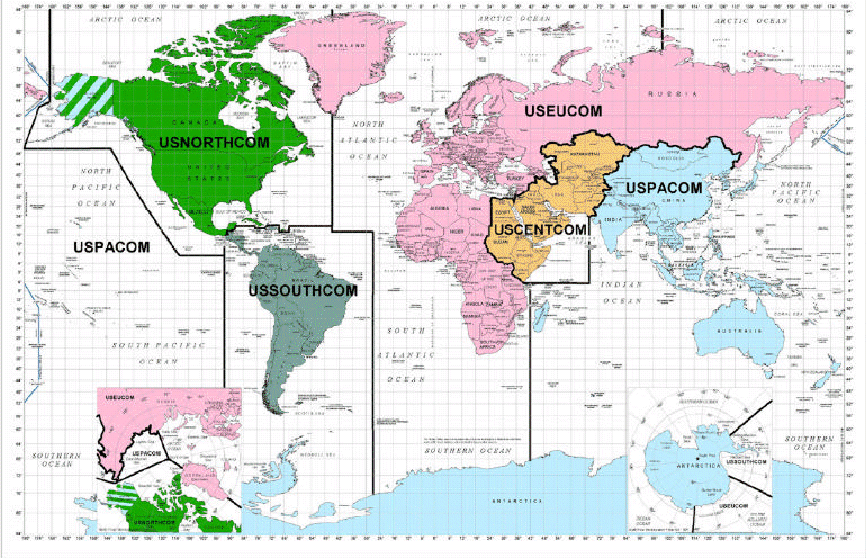
The Bush administration wanted to shift the U.S. Army's attention away from Russia, and Africa was an area of ongoing conflict. It announced that a new Africa Command would be established, despite a lack of studies or Congressional investigations to establish the need for one. The USA has no permanent bases in Africa, so it was announced that "Africom" would be temporarily established at the mostly vacant Kelley Barracks in Germany. This logic was questioned by several Congressmen, who thought it should be based in the USA, along with the jobs and economic stimulus that a large command brings to a community. The Central Command's official home base is in Tampa, Florida, while the Southern Command is in Miami. Some argued the Africom should set up in Florida to share resources. Army Generals did not argue, but insisted that this new command would be relocated to Africa in 2-3 years, and the best temporary location to start up Africom was Kelley Barracks in the woods near Stuttgart, Germany.
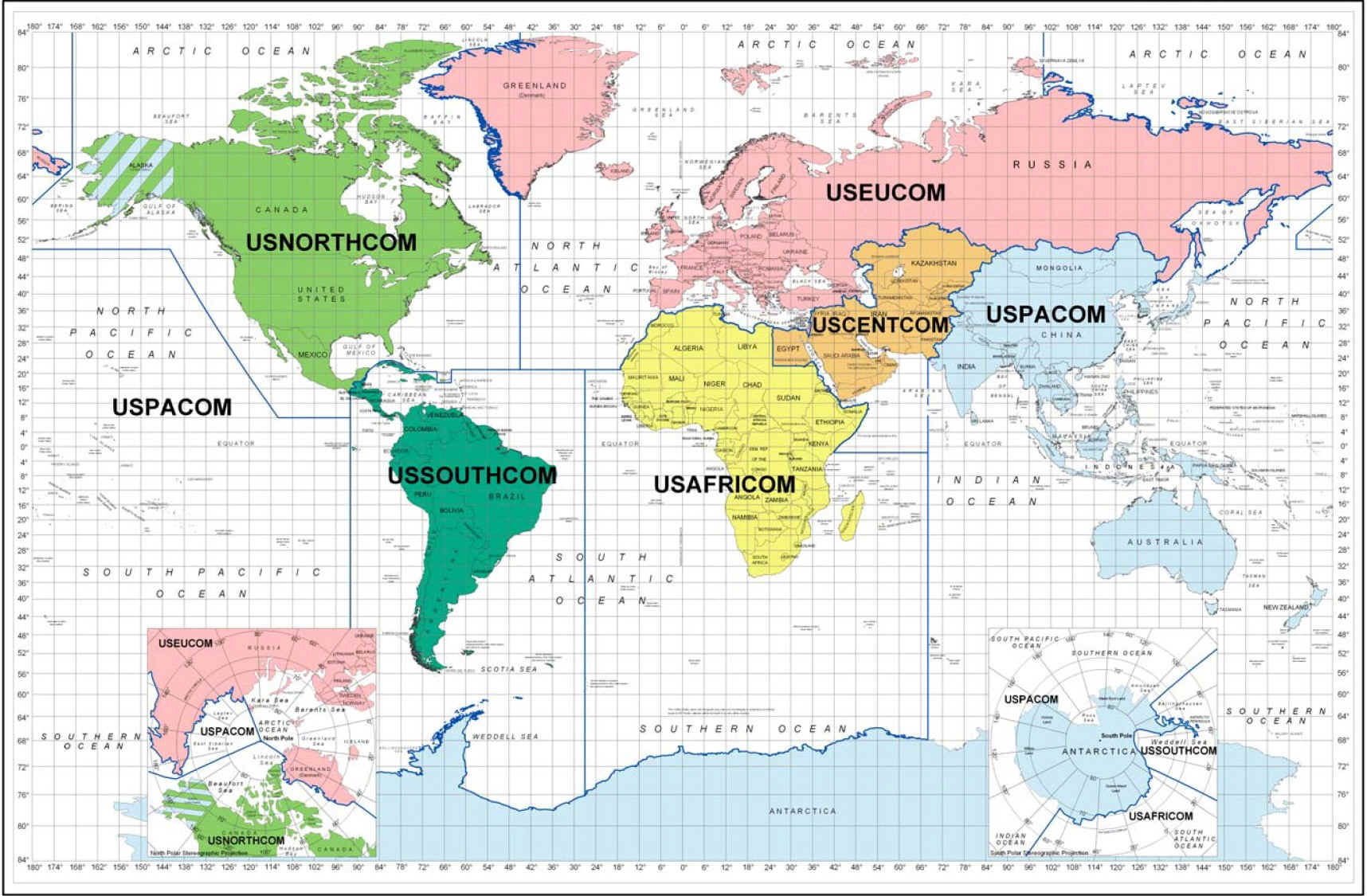
The first step to establish Africom was a multi-million dollar upgrade to every apartment at Kelley Barracks, and the construction of new facilities, to include a large hotel, shopping center, child development center, and travel office. No one questioned why all this money and effort was dedicated to Kelley Barracks, which would close before these projects were completed as Africom moved to Africa. Meanwhile, the modest idea of a 500-man Africom grew to a 2600-man staff, requiring new construction at nearby army bases to support the booming Africom business. One look at Africom's current command chart shows a massive bureaucracy with a four-star commander and ten supporting starlets that grew from nothing.
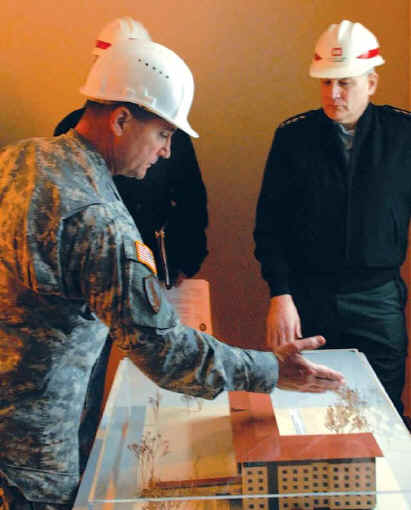 Congressmen
were hungry for jobs and economic stimulus after their GAO calculated Africom
would spend $2.1 billion to become fully operational. They wanted Africom
established at a base along the American east coast. The Army delayed the
Africom relocation decision until 2012, while its new commander hinted the best
location was Kelley Barracks, mostly because the Army had just spent
$140 million upgrading the base! This new Africom commander is General Carter
Ham, whose previous assignment was head of U.S. Army Europe, where he
supervised the improvements at "closing" Kelly Barracks. General Ham is pictured
getting briefed in early 2010 on the
nearly complete multi-million dollar hotel for Africom
personnel, while Army Generals told Congress and the press that Kelley Barracks was
a temporary home. He also approved a $1.4 million renovation
project for a mansion that is to become his home.
Congressmen
were hungry for jobs and economic stimulus after their GAO calculated Africom
would spend $2.1 billion to become fully operational. They wanted Africom
established at a base along the American east coast. The Army delayed the
Africom relocation decision until 2012, while its new commander hinted the best
location was Kelley Barracks, mostly because the Army had just spent
$140 million upgrading the base! This new Africom commander is General Carter
Ham, whose previous assignment was head of U.S. Army Europe, where he
supervised the improvements at "closing" Kelly Barracks. General Ham is pictured
getting briefed in early 2010 on the
nearly complete multi-million dollar hotel for Africom
personnel, while Army Generals told Congress and the press that Kelley Barracks was
a temporary home. He also approved a $1.4 million renovation
project for a mansion that is to become his home.
It is obvious that the Africom idea was generated by Army Generals fixated with keeping their nice bases open in peaceful, beautiful Germany. The U.S. President must set an example that such games are not tolerated. He should order Kelley Barracks closed within a year. Army Generals will feign shock that its new facilities are to be abandoned, but those funds were wasted the day they were spent. Any outrage should be directed at General Ham, who was the key player in this billion dollar boondoggle. The President must then decide what to do with Africom:
Option 1 - Disband Africom
The U.S. European Command managed African operations with no problems before Africom existed. In fact, the first crisis Africom confronted was the war in Libya. It was officially in charge, but all units were European Command assets operating from European Command bases in coordination with NATO. Africom has no assets and no bases, other than an outpost in Djibouti, so the European Command is better suited to command African operations as it has always done. Since the Warsaw Pact dissolved, the massive European Command hasn't much to do anyway, so Africa missions provide some utility.
Africa is the only region where our NATO allies have dedicated significant military resources due to historical ties (colonialism) and the resulting commercial ties. In addition, problems in Africa pose a direct threat to Europe in the form of refugee flows, mass illegal immigration and the resulting terrorist problems and occasional riots by disgruntled immigrants. Kelly Barracks is not a NATO base and is far from any NATO command, so coordination is difficult. Africom can be disbanded within a year to eventually save billions of dollars and eliminate an unneeded senior headquarters. Recall that Army Generals always insisted that Africom must be located in Africa to prove effective. Since they have been unable to secure a home in Africa, it provides no added value over the European Command located just a few miles down the autobahn.
Option 2 - Move Africom to Naples, Italy
If Africom is truly needed, a U.S. Navy base in Italy is a far better location. It is closer to Africa, which must be important since Army Generals say that Kelly Barracks is a better location than the American east coast because it's closer. A Navy Admiral is best to command since interventions in Africa are primarily a naval affair due to a lack of established bases. In addition, the only American base in Africa is a small Navy/Marine Corps outpost at Djibouti, while the nearest U.S. military bases to Africa are all U.S. Navy bases; at Rota in Spain, Sigonella in Sicily, and Souda Bay on Crete.
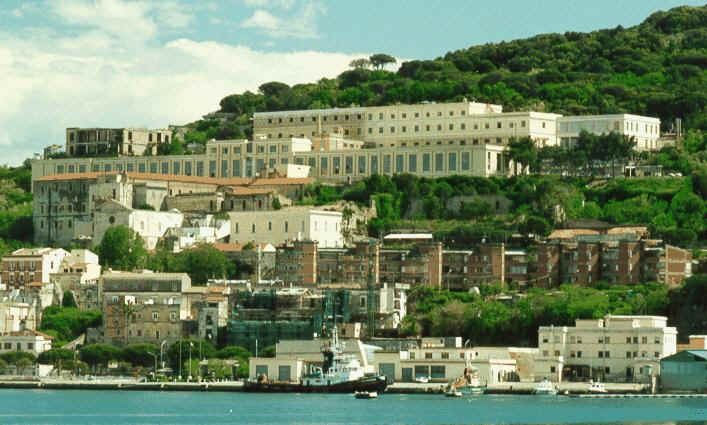 Naples is the obvious choice
if an Africom command is truly needed. Navy four-star Admiral Samuel J. Locklear
III is already there
as: NATO Commander Allied Joint Force
Command, Naples;
Commander, U.S. Naval Forces Europe;
Commander, U.S. Naval Forces Africa. He could also become Commander of
Africom. His three-star 6th Fleet Admiral has a massive command complex
down the road at Gaeta and command ship, the USS Mt. Whitney, to
coordinate actions offshore of Africa.
Naples is the obvious choice
if an Africom command is truly needed. Navy four-star Admiral Samuel J. Locklear
III is already there
as: NATO Commander Allied Joint Force
Command, Naples;
Commander, U.S. Naval Forces Europe;
Commander, U.S. Naval Forces Africa. He could also become Commander of
Africom. His three-star 6th Fleet Admiral has a massive command complex
down the road at Gaeta and command ship, the USS Mt. Whitney, to
coordinate actions offshore of Africa.
The USA maintains some 2000 sailors and staff at Gaeta, Italy (pictured) to command U.S. forces in the region. This command grew to deal with Soviet ships and influence in the region. The Soviets are long gone, and the Russians no longer play in the Med, so what is the purpose of this massive command center? Why does our Navy maintain four large naval bases in the Med, along with a command ship, and huge headquarters complex in the Naples area long after the Soviet threat left the area? The only answer is Africa. This recent Pentagon graphic of operations against Libya depicts NATO and American forces operating from the Med under control of a Navy Admiral aboard the USS Mt. Whitney. The headquarters of Africom in Germany is not even shown.
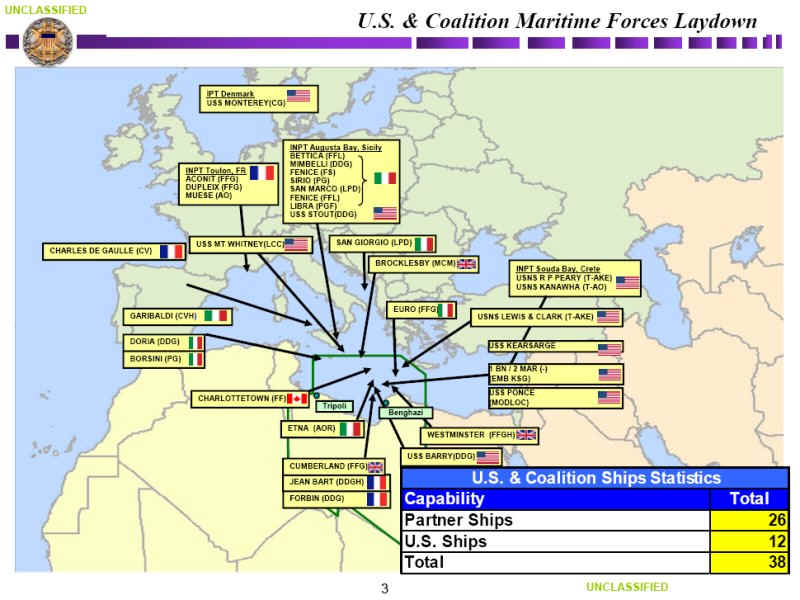
Apparently, Africom is busy with politics back in the USA. For example, someone decided that American states have so much extra manpower that they should team with African countries to provide disaster relief when needed, even as they struggle to aid their own American citizens. In 2010, Africom funded paid vacations for all state National Guard Generals to visit Kelley Barracks (below) and discuss theoretical state National Guard disaster relief to Africa. This is what occurs when a headquarters has too much idle time and too much money in their budget.
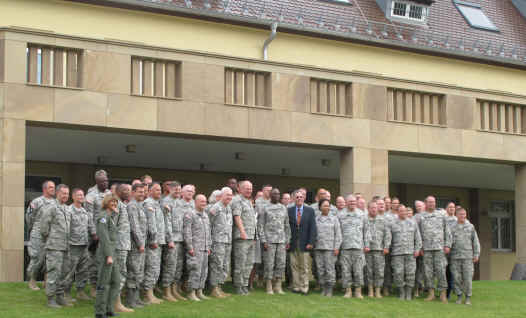 Our Navy in Naples
has always handled African events, and doesn't need to provide daily
teleconferencing briefs to Army Generals in the German woods. There may be only
a dozen African experts at Africom, who can relocate to Italy, and even fewer who fluently speak
a native African language, and maybe a couple more
who have lived in Africa. The other 99.5% of Africom staff are German citizens,
soldiers on normal 3-year overseas tours, and officers punching their ticket with a "joint"
tour. None have any expertise or real interest in Africa. This Africom
boondoggle must end, and Kelley Barracks finally closed.
Our Navy in Naples
has always handled African events, and doesn't need to provide daily
teleconferencing briefs to Army Generals in the German woods. There may be only
a dozen African experts at Africom, who can relocate to Italy, and even fewer who fluently speak
a native African language, and maybe a couple more
who have lived in Africa. The other 99.5% of Africom staff are German citizens,
soldiers on normal 3-year overseas tours, and officers punching their ticket with a "joint"
tour. None have any expertise or real interest in Africa. This Africom
boondoggle must end, and Kelley Barracks finally closed.
Carlton Meyer editorG2mil@Gmail.com
©2011 www.G2mil.com
Aug 2020 Update
Trump's base downsizing plan for Germany mentions moving the AFRICOM headquarters. It was suppose to be a small 500-man command element spun off from the European Command that was temporarily based down the road at Kelley Barracks when created after the Cold War ended. AFRICOM never moved to the United States as planned because Army Generals enjoy tours in expensive Germany. It grew into a 2600-man headquarters that resulted in a multi-million dollar building boom around Kelley Barracks, paid for by American taxpayers. I recently did a video about AFRICOM taking over all of Africa.
Building a new AFRICOM headquarters complex in Europe would be stupid. There are two options that make sense. Merge it into the big American headquarters complex near Naples, Italy, as I suggested in 2011. The other option is to downsize ARCENT and merge it into CENTCOM in Florida, then give its big new headquarters complex at Shaw AFB in South Carolina (pictured) to AFRICOM.

I suggested this years ago to shed 2000 headquarters personnel, but Army Generals hate ideas to downsize or eliminate redundant senior headquarters.
Merge ARCENT into CENTCOM
People talk about headquarters fat, and "component" commands are the best example. When Congress forced the establishment of unified commands, each service kept a separate "component" command. A Unified Command J-3 does not control forces directly, but must route everything through unneeded service component command layers.
For example, the Central Command covers the Middle East. For practical reasons, its headquarters is based in Florida with a forward headquarters in Qatar. However, the Army insists on having a huge separate "3rd Army" headquarters to pass messages from CENTCOM to major army units. It doesn't like mixing with the cluster of Generals in Florida, so it built a new massive headquarters building in South Carolina. ARCENT/3rd Army should disappear or downsize to a General and a dozen staff and move into the main CENTCOM building in Florida and allow CENTCOM staff to directly control major army units.